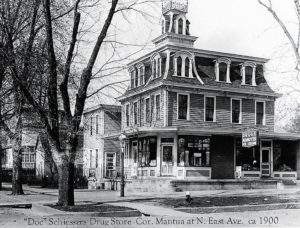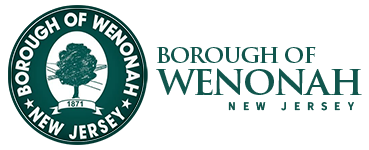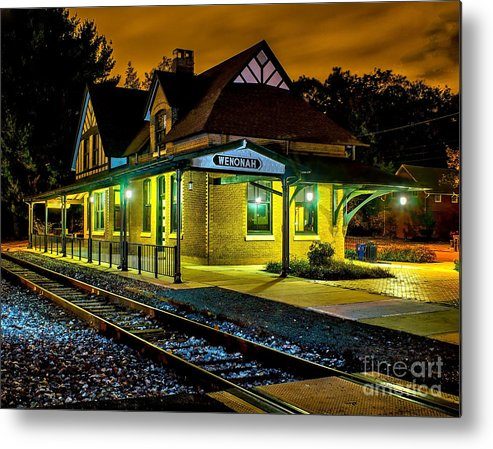A Brief History of the Borough of Wenonah
 In December 1870, a railroad station, which was much too elegant to transport produce form the local farmers, was about all that stood in the beginning of the town that we now know as Wenonah. There were farms, mainly growing sweet potatoes, but they had been there long before the train station.
In December 1870, a railroad station, which was much too elegant to transport produce form the local farmers, was about all that stood in the beginning of the town that we now know as Wenonah. There were farms, mainly growing sweet potatoes, but they had been there long before the train station.
On December 19, 1870, a special West Jersey Railroad train left Camden for the “New Mantua” train station. The train carried businessmen who were interested in creating a new suburban town, a planned town that would consist of more than 572 acres, currently used as farmland.
The Mantua Land and Improvement Company was incorporated on February 21, 1871. The company marked out the town plots into fourteen squares of twelve building lots, each measuring 75 X 150 feet deep. The railroad station, which was situated on the West side of the tracts, was the core of the rectangle, which was one-half mile in length and one-third more in width. Mantua Avenue was one hundred feet wide and all other streets were sixty-six feet wide.
On April 3, 1871, it was resolved that the name of the new town would be Wenonah. It is an Indian name meaning first-born daughter. Henry Wadsworth Longfellow’s poem, “The Song of Hiawatha”, presumes that Wenonah was Hiawatha’s mother.
In 1872, the Wenonah House was opened for guests. The forty-room hotel boasted of having running water and gas in every room. The hotel was furnished elegantly to attract the rich Philadelphians for the hot summers. Advertisements noted that Wenonah is a favorite place for all those seeking country fresh air. Another brochure advertised, “There is no healthier location in the vicinity of Philadelphia.” The Mantua Land and Development Company sales brochures indicated, “the ground was high with good drainage and free of Malaria.” The same brochure indicated that the town was “only twelve miles from Philadelphia and that Wanamaker’s delivered!”
Provided from the archives of the Wenonah Historical Society.


